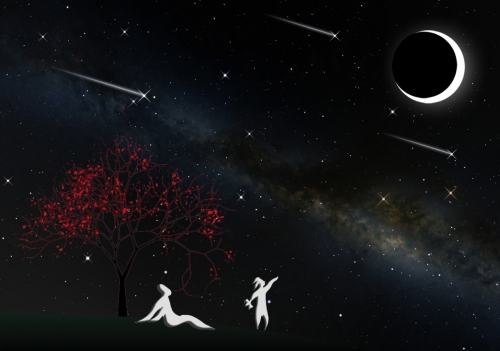
Stargazing Nights - CLOSED
- Where:
- Frosty Drew Observatory and Science Center
- When:
- Fri, Apr 19, 2024 - CLOSED
- Cost:
- This event has been cancelled
Welcome to the Frosty Drew Observatory and Science Center's Stargazing Nights! Every Friday night (weather permitting) we open our Observatory, Science Center, Sky Theatre, and telescopes to the sky and offer free stargazing and astronomy to anybody interested in observing with us.
Tonight's forecasts are calling for overcast conditions with rain moving into the region overnight. The 85% waxing gibbous Moon will be with us for most of the night, and would have offered good views of the Mare Imbrium region, which has several notable craters. Though cloud cover will become too heavy even for lunar viewing. Due to the forecast for overcast conditions we will keep the Observatory and Science Center closed tonight. We will open tomorrow at 10:30 am for the Ninigret Park Earth Day event. We’ll see you then.
Be sure to subscribe to the Frost Drew Observatory mailing list and follow us on Instagram to receive status updates about our Stargazing Nights program and more.
Take a moment to catch up on some astro-happenings this week in:
A Celebration of Space - April 19, 2024
Preparing for Your Visit:
Check out our page on Visiting Frosty Drew Observatory to learn more about what to expect at the Observatory and better help you prepare for your visit.
How to Dress for Winter Conditions: The Frosty Drew Observatory is not climate controlled, and the temperature inside the dome need to match the outside air temperature for a stable telescopic view. Frosty Drew Astronomy Team members dress in layers during the winter and for a very good reason. You should consider doing the same. Please read Dressing for All-Night Winter Stargazing to familiarize yourself with adequate dressing measures.
Please note that we do not allow any white lights on our campus or in Ninigret Park from dusk - dawn, with the exception of low beam headlights while in motion. This is to ensure an equally awesome view of the night sky for all and to allow for the use of light sensitive astronomical equipment. Learn more about why we have this requirement in The Red Light District.
